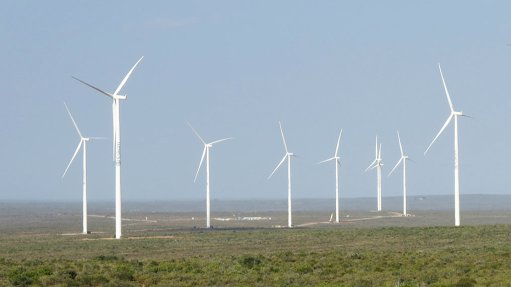Agoa-less?
Exactly 701 days! That’s the time that remained, at the time of writing, before the expiry of the African Growth and Opportunity Act (Agoa), the legislation introduced on May 18, 2000, to assist the economies of 44 sub-Saharan African countries and to improve their economic relations with the US. If anything, this scheduled expiry makes the future of US-sub-Saharan Africa relations uncertain. Just how committed the sub- Saharan African countries are to the US is, of course, another matter.
To meet Agoa’s rigorous eligibility requirements, sub-Saharan African countries must establish or make continual progress towards establishing a market-based economy, the rule of law, political pluralism and the right to due process. Additionally, they must eliminate barriers to US trade and investment, enact policies to reduce poverty, combat corruption and protect human rights.
Once eligible, the sub-Saharan African countries are provided with customs duty-free access to the US market for over 1 800 products (spanning over 6 500 tariff lines), in addition to the more than 5 000 products that are eligible for customs duty-free access under the Generalised System of Preferences programme. The US also engages in dialogues with countries from the region to provide their exporters with a deeper understanding of Agoa and its immense potential to drive trade and investment in these countries.
Why is the focus of this article on Agoa? There are two reasons. In the first instance, on July 6, the Department of Trade, Industry and Competition (DTIC) hosted the Gauteng Agoa Beneficiaries Consultative Dialogue in Pretoria under the theme ‘Understanding the Benefit of Agoa to SA Exporters’. According to the DTIC, these dialogues aim to engage with Agoa-beneficiary export companies and identify the challenges faced by exporters, fostering productive dialogue and collaboration. As the first phase of the vision, the dialogues will be rolled out across five provinces: Gauteng, KwaZulu-Natal, the Eastern Cape, Limpopo, and the Western Cape.
The DTIC states: “During the dialogues, participants will have the opportunity to engage in interactive discussions and networking sessions. Industry experts and government officials will share their insights and experiences, addressing the challenges faced by exporters and exploring strategies to overcome them.”
The dialogues will focus on three key areas: enhancing knowledge and understanding of Agoa regulations and requirements; identifying barriers and challenges faced by exporters; and providing guidance on accessing support services, incentives and resources available to exporters.
In the second instance, this article allows for the posing of the question as to whether South Africa would still be an Agoa beneficiary at its expiry on June 28, 2025, or, more pertinently, by the end of 2023. South Africa’s Agoa benefits are arguably at risk as a result of a single event, the BRICS Summit, which is scheduled to take place in Johannesburg from August 22 to 24. If you need reminding, BRICS is the acronym for the member countries, namely Brazil, Russia, India, China and, last but least, South Africa – the brickette.
Following Vladimir Putin’s decision to no longer attend the BRICS Summit, South Africa has been spared being placed in the position of having to arrest the Russian President on arrival in South Africa as a consequence of the International Criminal Court arrest warrant issued on March 17. Small mercies, one might say. However, even though blushes might have been spared, Putin will still attend – albeit online. As a consequence, there is still an association with Moscow, and that will be the remaining challenge for the South African government. Managing this challenge will test the South African government’s resolve to maintain relations with Moscow, as doing so has broad economic implications.
The choice is quite stark. On the one hand, there is duty-free access to the lucrative US market, and on the other, finding a way to – while not condemning Russia’s invasion of Ukraine – stay on the right side of Russia.
In the words of Austrian philosopher Ludwig Wittgenstein: “The world of the happy is quite another than that of the unhappy.”
Article Enquiry
Email Article
Save Article
Feedback
To advertise email advertising@creamermedia.co.za or click here
Press Office
Announcements
What's On
Subscribe to improve your user experience...
Option 1 (equivalent of R125 a month):
Receive a weekly copy of Creamer Media's Engineering News & Mining Weekly magazine
(print copy for those in South Africa and e-magazine for those outside of South Africa)
Receive daily email newsletters
Access to full search results
Access archive of magazine back copies
Access to Projects in Progress
Access to ONE Research Report of your choice in PDF format
Option 2 (equivalent of R375 a month):
All benefits from Option 1
PLUS
Access to Creamer Media's Research Channel Africa for ALL Research Reports, in PDF format, on various industrial and mining sectors
including Electricity; Water; Energy Transition; Hydrogen; Roads, Rail and Ports; Coal; Gold; Platinum; Battery Metals; etc.
Already a subscriber?
Forgotten your password?
Receive weekly copy of Creamer Media's Engineering News & Mining Weekly magazine (print copy for those in South Africa and e-magazine for those outside of South Africa)
➕
Recieve daily email newsletters
➕
Access to full search results
➕
Access archive of magazine back copies
➕
Access to Projects in Progress
➕
Access to ONE Research Report of your choice in PDF format
RESEARCH CHANNEL AFRICA
R4500 (equivalent of R375 a month)
SUBSCRIBEAll benefits from Option 1
➕
Access to Creamer Media's Research Channel Africa for ALL Research Reports on various industrial and mining sectors, in PDF format, including on:
Electricity
➕
Water
➕
Energy Transition
➕
Hydrogen
➕
Roads, Rail and Ports
➕
Coal
➕
Gold
➕
Platinum
➕
Battery Metals
➕
etc.
Receive all benefits from Option 1 or Option 2 delivered to numerous people at your company
➕
Multiple User names and Passwords for simultaneous log-ins
➕
Intranet integration access to all in your organisation

















